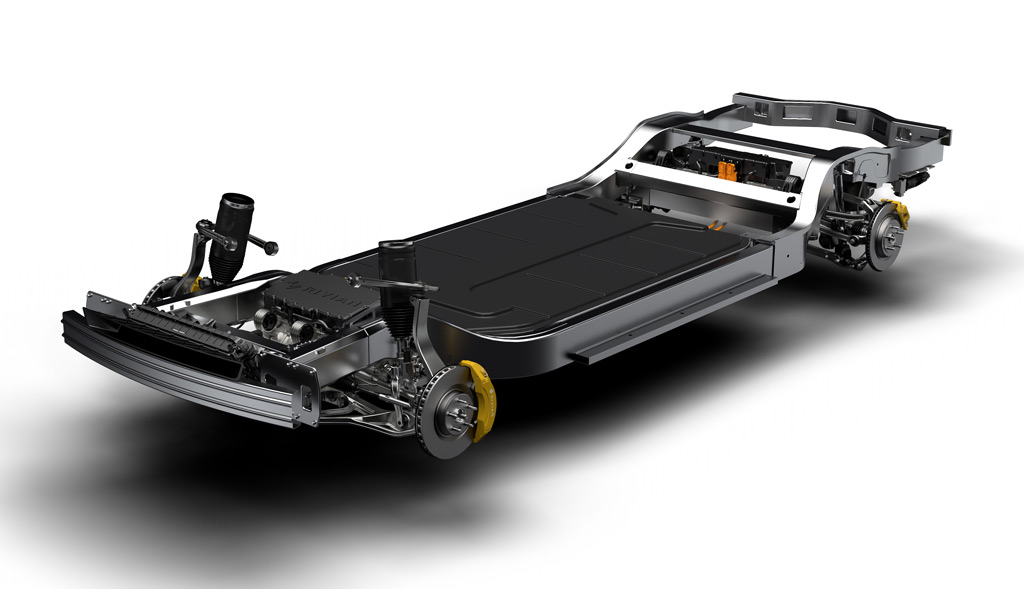Lincoln will no longer launch an electric SUV based on a modular platform sourced from EV startup Rivian, the automaker announced Tuesday.
Lincoln blamed the downturn caused by the ongoing Covid-19 coronavirus pandemic for its decision, but said it remains committed to adding an EV to its lineup in the future. The automaker said the near silent operation of EVs is consistent with its “Quiet Flight DNA” brand strategy.
Lincoln first announced plans for the electric SUV in January. The SUV was to be a new addition to the lineup, as opposed to an electric version of an existing nameplate, and was expected on sale around 2022 or 2023.
Despite the latest announcement, there could still be further collaboration between between a Ford brand and Rivian in the future. Ford is a major shareholder of Rivian, having invested more than $500 million in the EV startup since April 2019.

Rivian electric car platform
In an interview with Automotive News (subscription required) published Tuesday, Lincoln said it is still working closely with Rivian, including on an “alternative vehicle” that will also be based on Rivian’s platform.
The Rivian platform is a compelling option. The skateboard-style design is scalable in size and capable of spawning vehicles with up to 400 miles of range. The first vehicles based on the platform are Rivian's own R1T pickup truck and R1S SUV due in 2021. The vehicles were originally due in 2020 but were pushed back because of delays caused by the pandemic.
Ford also has a compelling option in the form of the platform underpinning the Mustang Mach-E electric SUV. Lincoln in early 2019 said it will use the platform for its own vehicle.
Stay tuned.
